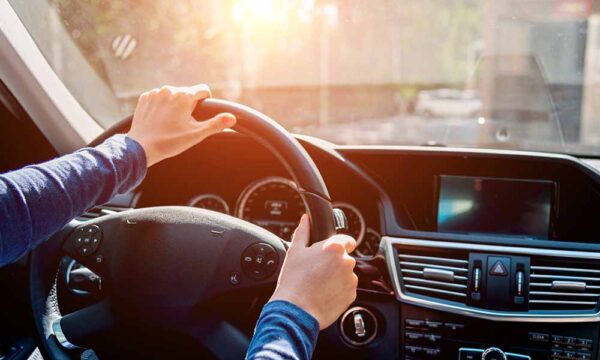
Motor vehicle crashes are the number one leading cause of death among 15 to 20-year-olds. 16-year-olds have a higher crash rate than drivers of any other age and are three times more likely to die in a motor vehicle crash than the average of all drivers.
The prevalence of these teen accidents has been attributed to many factors. Most recently, data has emerged from a study conducted by the Children’s Hospital of Philadelphia and State Farm Insurance. Published in the journal Accident Analysis and Prevention, the study outlined the three driving mistakes that hurt teens most:
- Failing to scan the road
- Misjudging driving conditions
- Becoming distracted
How Can Teens Become Better Drivers?
According to Dr. Dennis Durbin, the author of the study, focus needs to be on these three common mistakes to improve teenage driving and to reduce fatalities. Durbin suggests creating “programs that can help parents more intentionally teach these kinds of skills.”
Road scanning is something that most experienced drivers do automatically, so often parents forget to focus on it when instructing new drivers. To help build road-scanning skills, Durbin suggests parents ask teen drivers questions about their surroundings. Questions like, “What color jacket is the person on the sidewalk wearing?” or “What color is the car three cars ahead of you?”
Misjudging driving conditions is another factor that contributes to teen accidents. Often inexperienced drivers will not necessarily be speeding but will fail to reduce speed at a curve or in slippery weather-related conditions. This may stem from parents not letting teenagers drive when road conditions are poor. Durbin suggests using poor weather as an opportunity to teach those skills in a supervised setting, giving the teen driver experience on wet or icy roads.
State Laws Can Help
State governments can help as well, by enacting laws that delay permits until teens are 16 and requiring more driving experience before becoming licensed. According to the Centers for Disease Control and Prevention (CDC), in 2008 half of all teen deaths resulting from car accidents occurred between 3pm and midnight. Some states issue limited licenses that do not allow teen drivers to drive past 10pm, which cuts out some of the most dangerous hours of driving for teenagers.
Federal Government May Set Driving Regulations
The Safe Teen and Novice Driver Uniform Protection (STANDUP) Act is currently proposed to require states to enact a three-stage licensing process, including a learner’s permit period, an intermediate phase and an unrestricted stage. States would not be forced to participate but might lose federal highway funding for not complying with the standards. The bill would allow the U.S. Secretary of Transportation to impose many restrictions including
- No cell phones while driving
- One unrelated passenger in the vehicle at a time
- Minimum driving time under learner’s permit
- 30 or more hours of driving experience before driver’s test
- And many more
Congressman Randy Hultgren, who is sponsoring the STANDUP bill, says that today’s teen drivers face far more distractions than previous generations. The study published in Accident Analysis and Prevention, concurs. It found that 20 percent of teen crashes are due to driver distraction, often due to another person in the car.
Teens and Trucks
Many teens will make mistakes that result in accidents that they are able to walk away from. However, when that mistake involved a commercial truck or tractor-trailer, it often results in fatality of the occupants of the car. Trucks are made of tougher material than cars and are less maneuverable than their smaller counterparts. Teens must be instructed by parents on how to drive on a road with tractor-trailers so that fewer of America’s youth loses their lives on the roadways.
Ticketkiller
Ticketkiller supplies citizens with free or professional help so that anyone can beat almost any speeding ticket including radar laser and aircraft enforcement tickets.
If you, your teenager or a teen you know has been involved in a motor vehicle accident, contact us for a free consultation to learn more about your legal rights and options.
